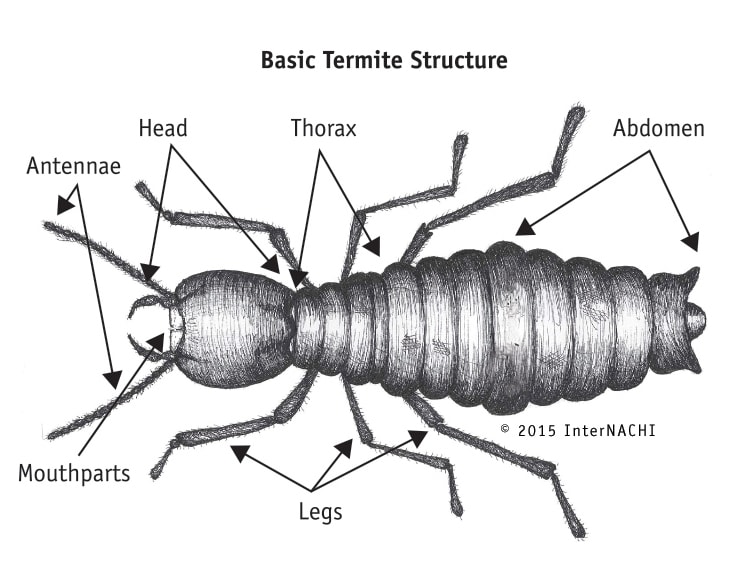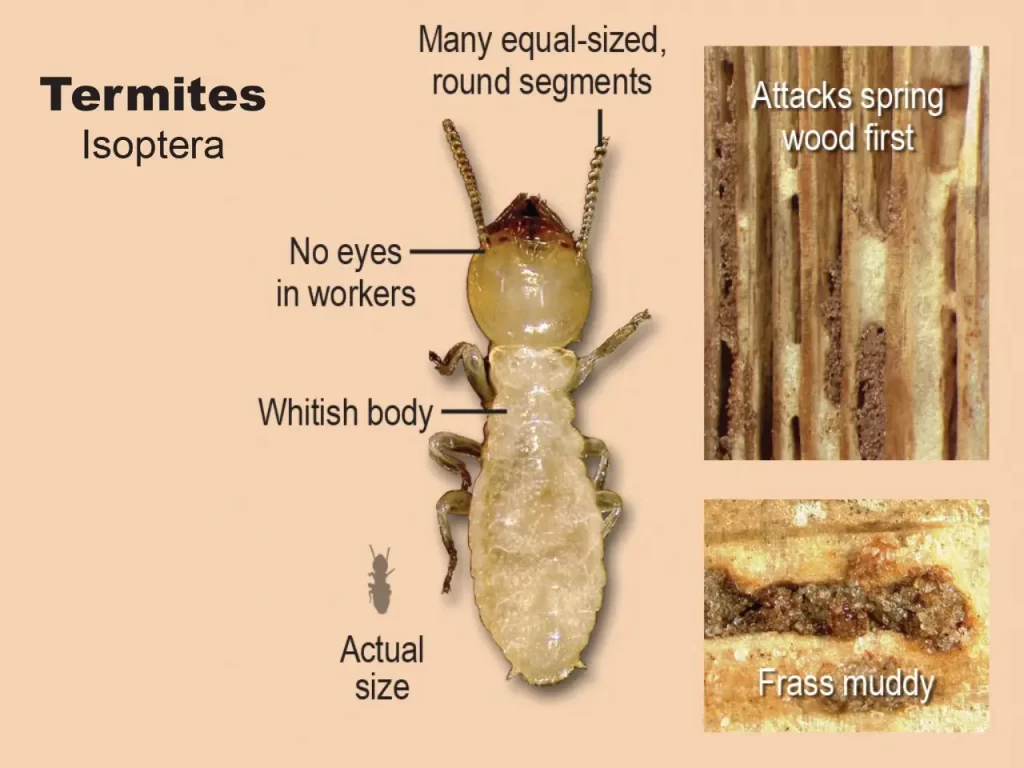Termites are masters of disguise, often working away inside walls and floors without leaving obvious clues. However, there are telltale signs that can indicate their presence. Keep an eye out for these:
- Mud Tubes: These pencil-thick tubes are built by subterranean termites to travel between their colony in the soil and the wood they’re feeding on. You might find them along foundation walls, crawl spaces, or exterior siding.
- Hollow-Sounding Wood: Tap on wooden structures like baseboards, door frames, or window sills. If they sound hollow or papery, termites might have eaten away the interior.
- Frass (Termite Droppings): Drywood termites leave behind small, pellet-like droppings that resemble sawdust. Look for these near small holes in the wood.
- Discarded Wings: Swarmer termites, the reproductive members of the colony, fly out to establish new colonies. After mating, they shed their wings. Finding piles of these translucent wings, especially near windowsills or doors, is a strong indicator of a nearby infestation.
- Uneven or Bubbling Paint: Termite activity beneath the paint can cause it to bubble or appear uneven, as they tunnel through the wood.
- Sticking Doors or Windows: As termites damage the wooden frames, doors and windows can become warped and difficult to open or close.

While spotting these signs yourself is helpful, it’s important to remember that termite infestations can be well-established before these clues become apparent. This is where a professional inspection becomes invaluable.
Why a Termite Inspection is Non-Negotiable When Buying a Home
Imagine finally finding your dream home. Everything seems perfect, and you’re ready to sign on the dotted line. But what if unseen termites are silently feasting on the structural integrity of the property? Discovering a significant termite infestation after closing can lead to thousands of dollars in unexpected repairs and a whole lot of stress.
A professional termite inspection, typically performed by a licensed pest control company, provides a thorough assessment of the property for any evidence of current or past termite activity. Here’s why it’s a critical step in the home buying process:
- Early Detection: Trained inspectors know exactly where to look for subtle signs of termites that an untrained eye might miss. They have the tools and expertise to identify infestations in their early stages.
- Peace of Mind: Knowing that a professional has thoroughly inspected the property for termites can give you invaluable peace of mind as you move forward with the purchase.
- Negotiating Power: If the inspection reveals termite damage or an active infestation, you can use this information to negotiate repairs with the seller or even reconsider the purchase. This can save you significant money and future headaches.
- Protecting Your Investment: Your home is likely the biggest investment you’ll ever make. A termite inspection is a relatively small cost compared to the potential expense of repairing termite damage. It’s an essential step in protecting your investment.
- Fulfilling Lender Requirements: In many cases, mortgage lenders require a termite inspection (often referred to as a Wood Destroying Insect (WDI) report) before approving a loan. This is to protect their investment as well.
Don’t skip the termite inspection! It’s a small investment that can provide significant protection and prevent costly surprises down the road. Ensure the inspection is performed by a reputable, licensed professional, and carefully review the report.
Buying a home is an exciting journey. By being proactive and including a termite inspection in your due diligence, you can ensure that your dream home doesn’t come with unwanted, wood-devouring guests.


